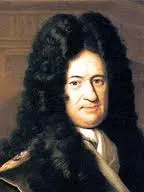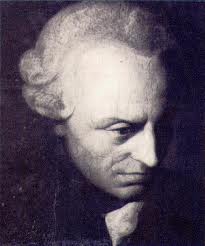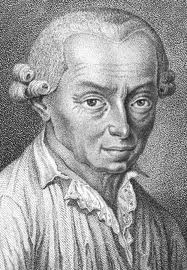Was Kant a synthesizer? What was Kant’role in the philosophical history?
Was Kant a synthesizer? What was Kant’role in the philosophical history?
Once called Königsberg, it was the capital of East Prussia, the prosperous and orderly background of the monotonous life of Immanuel Kant.
The philosopher didn’t loved to travel and never left Königsberg, if not for a carriage ride with back in the day. In return for the dead has made a series of trips while remaining firm in the tomb of the cathedral, the Königsberg Sun, where he is buried, because the boundaries have shifted and people around him. In the Second World War the city was conquered by the Red Armyand and incorporated into the Soviet Union. In 1946 Stalin gave it the name of Kaliningrad (in honor of Mikhail Kalinin, the head of the Bolshevik and Soviet state, who died that year), forced the Germans to leave the city and replace them with Russian people. In 1991, with the end of the USSR,

Kaliningrad found itself separated from Russia and has begun to open to visits by foreigners, German refugees and their children. Since 2004 – the bicentenary of the death of Kant and the entry of Poland and Lithuania in European Union – the city is even more isolated and Kaliningrad people have to get a flight or a visa, in order to go home. So a certain discontent meandering.
A group of tourists visiting the town: “I come from a town near Frankfurt – tells one of them – and I arrived by bus. We are a group of people whose family is originally from these areas. Before the war it was on German soil. “
Kaliningrad history and its image, with a lot of historical and political strong shocks, is a very strange frame for Kant, a man troubled by the slightest change in his life.
But there is a sort of revenge of the old town Königsberg, the Eighteen’s and the eternal thinking of the philosofer.
The cathedral is one of the few buildings left standing – more or less – after the British bombardment. With the support of the Germans, was rebuilt after years of ruin and abandonment. Right here, in the ancient cathedral situated in a little island in centre of old town, Kant tomb lies, with a solemn mausoleum.
Here it seems that the time stops, and all the trouble were not able to destroy the peace of Kant rest.
Do not miss a souvenir photo in front of the tomb of Kant.
The philosopher got up every morning at five o’clock, ate lunch and went out only at five o’clock in the evening for the walk, so punctual that people regulated their watches. Dined in the company, but walking by himself – and here begins the hypochondriacal neurosis. He did it not to meditate in peace, but to breathe through the nose, that could not have done in company. He opened his mouth only to recommended to his friends constantly: “Balance and persevering in this exercise ensures a long immunity from colds, aches, catarrh and lung disorders.” He had a system of rods to hold up stockings without using – like his contemporaries – the garters that were blocking circulation. At ten o’clock he went to sleep in a room completely dark: a moonbeam could disturb the rest.
At the entrance of the cathedral there is a picture of Putin with German Chancellor Gerhard Schröder as a sign of peace. Many works have been made recovery of the German for the 750° anniversary of the city founding (1255-2005). But the church has returned only a small part to be a place of worship. The main space is now a major concert hall. On the sides, two chapels on the left the Russian Orthodox Church, the German right-Protestant. On the upper floors is a map of the city in 1613, a model of the church, some pictures of how it appeared after the destruction of the remains: brick, decorative … Then portraits of Kant, newspapers announcing his death, a small statue that shows him thoughtfully for a walk, a cast of his skull resting on the pillow plaster mortuary. The fleshless face is not only for age, he was probably sick of Alzheimer. A good tradeoff for who, like him, has made control and iron discipline a leitmotiv of his life.
The cathedral and the tomb is located on the island of Kneiphof, renamed “Kant island”. One of the access roads is a bridge builtfrom scratch on the Teutonic model, and full of padlocks and the names of lovers.
Kant liked to surround himself with young, but would be horrified, it was confidential and never married because of, as many people say, the delicate but unwieldy figure of his mother, a Protestant Pietist who died young after having engaged in long hours of prayer.
What about Kaliningrad itself?
Kaliningrad is a city alive with big ambitions. The locals compared it to America, Australia or Singapore. It is a melting pot of  nationalities and cultures, with its ice-free Arctic port, and it’s a big problem from the political point of view.
nationalities and cultures, with its ice-free Arctic port, and it’s a big problem from the political point of view.
In terms of attractions, Kaliningrad certainly does not lack anything, but a part of its charm lies in its very blatant contradictions. The big wreck of House of Soviet, built on the original territory of Königsberg Castle and shade of an old German house in ruins, is a few hundred yards from the Fishermen’s Village, an evocation of the ancient city of Königsberg unfaithful. Not far from Piazza della Vittoria, the former Gestapo headquarters now houses the notorious FSB (Federal’naja Rossijskoj Federacciai information from Interpol, the Russian secret service).
Kaliningrad is a confused mix of old, new, rebuilt and imagined: statues of Karl Marx, fountains, old and tough off-road vehicle with tinted windows. For the past Kaliningrad is turning into a business in which to invest, thus pleasing hundreds of local interestand nostalgic Germans who come here every year to spend their holidays.
Kaliningrad is changing rapidly. The change is gaining impulse, although the benefit of a select group of international investors, the only witnesses of the new dynamism of the city.
Walking along the romantic river, between the ancient cathedral and the orrible House of the Soviets, I breathed air typical of places where it really made the history.
Kant’s discussion of what is involved in there being an actual world in the Inaugural Dissertation contains a refutation of idealism. A merely “perceptual” world is not an actual world, for an actual world must be a set of substances perceived as in interaction with one another and with human knowers. As Kant understood him, Leibniz had maintained that to see an ordinary physical object is to have a confused representation that, if we were to represent it more adequately, would appears to us as what it really is, an aggregate of monads (Cf. G 6: 618ff.)

Leibniz’s metaphysics was developed within, and in part as a reaction to the mechanical philosophy of the mid-to-late 17th century, revived by Bacon, Galileo, Descartes, Gassendi, Boyle, and Locke. While the term “substance,” meaning the indestructible stuff of the universe, was retained by Descartes in his discussions of res extensa, the mechanical philosophers were committed to a corpuscularian theory in which objects were temporary aggregates of solid, indestructible particles with various figures and motions, and all change occurred through their collisions, entanglings, and so on. Leibniz contested the corpuscularian image of the world, insisting that it was insufficiently profound and inherently self-contradictory (G 4: 480), and holding that matter was an appearance founded upon the reality of “metaphysical points” or, as he later termed them, monads: qualitatively unique, unextended, impenetrable, indestructible and partless units that also perceived and strove (G 6: 608.) Kant appreciated the reasons that led Leibniz to posit soul-like entities rather than material atoms as the basic elements of the world. But he was concerned with a very different scientific image. While Newtonian matter-theory was depicted as a rival to Leibnizian immaterialism in the mid-18th century, in for example the Institutions de Physiqueof Mme du Chatelet, Newton was no ordinary corpuscularian or mechanical philosopher, and Kant did not have to contend with that now old-fashioned ontology. His own metaphysics presupposed a Newtonian world held together by forces acting at a distance, one in which the matter of ordinary objects was perhaps only a kind of condensed vapour, as Newton had speculated in Book III of his Principia. Nature had already, so to speak, been dematerialized for Kant by physics, and his Opus Postumum anticipates the romantic nature-philosophy of the 19th century. Matter, he could readily agree with Leibniz, cannot be a thing in itself, stuff possessed of characteristics and qualities independent of human perception; what we call matter is an appearance (4:507.) The inner nature of substances cannot be described by reference to shape, contact or movement, which characterize the objects presented to us. He understood Leibniz’s reasoning in favour of monads as follows: It is impossible to conceive two material atoms as both different from one another and as simple, i.e partless; yet possible to conceive two souls that are both different and partless (20:285.) Therefore, if substances are manifold and partless, they must have representational capacities. The crucial error in this reasoning lay in supposing that our abstract conceptions are a guide to reality behind the spatio-temporal appearances. Yet properly understood, he maintained, Leibniz’s monadology was not an attempt to explain appearances but the expression of a “Platonic” view of the world, considered apart from our sensory experience of it (4:507; 8:248.)

Kant absolutely rejects idealism, but he too believed it possible to deduce some features of matter, as physical science must theorize it, a priori. There are no material atoms; matter is divisible to infinity and its parts are all material (4:503f.) Yet Kant recognized, first in the Physical Monadology, then in the Metaphysical Foundations, particles in the form of centres of attractive and repulsive forces that account for the space-filling property and impenetrability of matter (4: 533ff.) This relatively dogmatic treatment co-exists with his critical claim that matter is the appearance of a perfectly unknown substratum. As he explains it in the Critique of Pure Reason, the rainbow is a mere appearance relative to rain drops which, in a physical sense, are things-in-themselves and not mirages. Yet thinking further, we realize that the raindrops too are mere appearances, and that “even their round form, indeed, even the space through which they fall are nothing in themselves, but only mere modifications or foundations of our sensible intuition; the transcendental object, however, remains unknown to us.” (CPR A45 f./B 63f.) “About these appearances, further, much may be said a priori that concerns their form but nothing whatsoever about the things in themselves that may ground them.” (CPR A49/ B66.) This suggests that the stuff which is divisible to infinity and bears attractive and repulsive forces is an appearance of something unknown and unknowable. “We can understand nothing except what brings with it something in intuition corresponding to our words. When we complain that we do not see into the inner nature of things, this can mean no more than that we cannot grasp, through pure reason, what the things that appear to us might be in themselves…. Observation and division with respect to the appearances take us into the interior of nature, and we cannot say how far this will proceed. But every transcendental question that takes us beyond [perceptible] nature can never be answered….” (KRV (A277f./B333f.)
Looking to human beings as and end, and not as a means only.
What do you think about this problem?
Hello. We wanna continue our discussion about Kant’s mistakes. Here you can find five “famous” opinions. But you, what do you think? What was Kant’s main mistake?

Howard Williams: Kant’s main mistake was not to be born a hundred or so years later so that he could take advantage of the developments in social studies, in particular political economy and social anthropology that would have enhanced his attempts to implement his practical philosophy.
In terms of things he might have been able to influence: he might have paid a little more attention to his style of writing in the second and third Critiques and given women a little more credit for intellectual ability and political wisdom than he does. His account of religion also leaves a lot of unresolved difficulties. He dispenses with any kind of empirical notion of a divine being, but what kind of being are we to imagine plays a role in practical philosophy?
Kenneth Westphal: Kant’s main mistake, I believe, can be stated simply, though its demonstration requires careful elaboration: Kant erred in thinking that his most important principles, regarding both cognition and practice, and their justification require Transcendental Idealism. In my new book I argue that: Kant’s arguments for Transcendental Idealism are invalid; they are shown to be invalid by some of Kant’s own key transcendental proofs in the Critique of Pure Reason; Transcendental Idealism cannot provide the justification, e.g., of causal judgments or of practical freedom that Kant claimed it alone could provide; and that Transcendental Idealism is not necessary for justifying either Kant’s key cognitive and practical principles, nor is it necessary for defending the possibility of free moral action. Dispensing with Transcendental Idealism enables us to understand and appreciate Kant’s genuine philosophical achievements.
Eric Watkins: In retrospect, there is much in Kant’s writings that one could take issue with–many contemporary philosophers, whether consciously aware of it or not, are, I take it, doing precisely that. However, to make a mistake is, at least in one important sense, to do something that one should have known is incorrect or improper, and given the difficulty and ambitions of Kant’s project(s), it seems unfair to attribute too much blame for the inevitable missed opportunities.
Andrew Ward: I should like to say, first, what I think is NOT a ‘great mistake’ committed by Kant. His embracing transcendental idealism is not, as so many anglo-american philosophers now think, a serious error. On the contrary.His greatest error, rather, was in supposing that he could defend the possibility of freedom of the will in the face of the thoroughgoing determinism that exists in the spatio/temporal world. Since his defense of free will is (in my view) unsatisfactory, his attempt to replace an empiricist theory of morality with a rationalist one is a failure. What is more, his practical arguments for the existence of God and the immortality of the soul must collapse (since they depend of our possessing free will).
Barry Stroud: Although it cannot be called simply a ‘mistake’, I think what led Kant disastrously astray was his idea that there is such a thing as Reason with its own fixed structure and in which all human beings participate. He thought he was studying and revealing the structure of just such an abstract thing or faculty, and it had a profound effect on how he understood his results. I do not think that assumption is essential to the enterprise of exploring the necessary conditions of the possibility of any human thought and experience or to appreciating the special relation in which human beings would stand to any of the truths shown to have that special status. The deep significance of the fact that we stand in that relation to certain necessary and pervasive features of human life is what is most distinctive of Kant’s philosophy.
What do you think about? Are they right? And, in your opinion, what was Kant’s mistake?
Karl Ameriks: My own main regret is that he abbreviated his arguments sometimes, and his language tended to be overconfident . His talk about achieving completeness and certainty may have misled others into thinking it was easy to develop a philosophical system, and it may also have misled some into thinking that since some of the system seemed wrong the whole system had to be replaced.
Maria Borges: The main Kant’s mistake was his account on women. In his Observation on the feeling of the beautiful and sublime, he argues that laborious learning or painful pondering even if a woman should succeed in it destroys the merits that are proper to her sex, because they make of her an object of cold admiration but at the same time they will weaken the charms with which she exercises her great power over the other sex. I think this is a very sexist claim, although I am not sure that it does not apply today to the masculine mind. Since in the 21st century men continue to prefer less intelligent female partners, perhaps Kant was only describing an empirical fact about the masculine nature.
Andrew Brook: By far and away his biggest mistake in the areas in which I work was his claim that all we are aware of directly is our own representations, and the doctrine of the unknowability of anything as it is that flowed from the former.
Douglas Burnham: In the Critique of Judgement, Kant studies the phenomenon of ‘lawfulness without law’, which exhibits properties only analogous to universality, objectivity, necessity – and indeed exhibits these properties only insofar as the phenomenon as problem must eventually be taken up by natural cognition. Here, then, is a new manner in which an experience or judgement can exhibit order and, ultimately, rationality. (The sublime is a mirror-image.)
However, in the Critique of Practical Reason, the moral law is discussed as the mere form of law. As regards its form, he argues, law is law. For me, Kant’s mistake is that he does not pursue this notion thoroughly, but instead relies upon uncritically adopted features taken from the earlier treatment of natural law. There are partial recognitions of this, and attempts to compensate, in Kant’s accounts of moral education or casuistry for example. But it remains the case that the specific mode of the rationality of my moral judgements is insufficiently clarified. Recognising this sets us an urgent task as philosophers.
One question, five answers.
And you? want do you think? What was Kant’s main mistake?
Henry Allison: Obviously, there are many things I wish that Kant had never said (for example, some of his statements about women, sexual morality, and the like) and many arguments which leave much to be desired. In addition, there are the areas (such as mathematics) where Kant`s views have been rendered obsolete by subsequent developments. But none of these count as “mistakes” in my view. If I have to select one such mistake, I believe that the chief is his regrettable decision to publish his “Ueber ein vermeintes Recht aus Menschenliebe zu luegen.” Not only does Kant here misrepresent his own views on the matter, but it has made it all too easy for critics to attack a distorted picture of his moral theory.
Beatrice Longuenesse: I think Kant’s main mistake lies in the way he thinks about the relation between his theoretical and his practical philosophy. He thinks he can salvage the notion of freedom indispensible to his moral philosophy only by reintroducting as objects of faith the metaphysical truths he had denied as objects of knowledge. I think this is a confusing and unnecessary move, which sends him straight back into the pre-critical, metaphysical age he had wanted to break away from.
Lourdes Flamarique: The “anthropologization of philosophy”: In the Kritik der reinen Vernunft Kant builds metaphysics on the basis of the natural inclinations of reason and the recognition of the limits of the intellect. Accordingly, Kant outlines an ontology with consciousness as the central point.
To put it in Aristotelian terms, I think that Kant’s biggest mistake is his hylemorphic approach to human knowledge. For this amounts to think knowledge in terms of “poiesis” instead of “praxis” (in the Aristotelian sense). This is a huge mistake, whose only justification is Kant’s own interest in explaining the method of physical science against the background of an empirist tradition.
Paul Guyer: In my view, Kant’s chief mistake was to assume that we can have complete certainty about the most fundamental principles of nature, and to base his distinction between appearance and reality on this assumption, which distinction then allowed him to treat freedom of the will as something that automatically exists in the unknowable realm of noumenal reality rather than something that must be painstakingly realized within the limits of nature. One of Kant’s chief worries was that if the freedom of the will could not be demonstrated then people could use determinism as an excuse for the immoral actions they are all too naturally disposed to perform; but transposing freedom of the will from the sensible world of appearances to the supersensible realm of reality could have precisely the same effect. Kant did realize that people must learn to discipline their inclinations in the natural world, but he should have recognized that our freedom and rationality can be achieved only in the natural world and within the limits of nature, and that our chief task is precisely to learn how to do this.
Patricia Kitcher: One major mistake was assuming that scientific problems were amenable to philosophical solution. Despite his careful distinction between method in mathematics and in philosophy, he still offered transcendental idealism as as solution to problems such as the infinite divisibility of lines. Assuming that the problems raised by Newtonian mechanics could never be resolved by science, he again tried to offer philosophical solutions to questions about the nature of space and time.
 In a much-cited essay, Barry Stroud (1968) argues that, to any claim that the truth of some proposition is a necessary condition of some fact about our mental life, the skeptic can always reply that it would be enough for it merely to appear to be true, or for us merely to believe that it is true. Transcendental arguments, he claims, at best demonstrate how things must appear, or what we must believe, rather than how things must be. Anti-skeptical transcendental arguments of familiar sorts are thus left with a gap to fill. Stroud’s contention—which is now widely accepted—is that such arguments, when aimed at refuting epistemic skepticism, can only close that gap by adverting either to a sort of verificationism or to idealism. In the case of Strawson’s arguments above, even supposing that we must be in possession of some criteria for applying concepts of other minds and/or an objective world, this fact only has anti-skeptical consequences if we also accept that there is no meaningful concept-application without experiential criteria sufficient for knowing whether the concept is instantiated. As Stroud points out, such a principle is implausible. Further, if we accepted such a principle, other aspects of transcendental arguments would be superfluous. All we would have to show is that we meaningfully employ external-world concepts; it would be impossible for any form of skepticism to be meaningful or intelligible.
In a much-cited essay, Barry Stroud (1968) argues that, to any claim that the truth of some proposition is a necessary condition of some fact about our mental life, the skeptic can always reply that it would be enough for it merely to appear to be true, or for us merely to believe that it is true. Transcendental arguments, he claims, at best demonstrate how things must appear, or what we must believe, rather than how things must be. Anti-skeptical transcendental arguments of familiar sorts are thus left with a gap to fill. Stroud’s contention—which is now widely accepted—is that such arguments, when aimed at refuting epistemic skepticism, can only close that gap by adverting either to a sort of verificationism or to idealism. In the case of Strawson’s arguments above, even supposing that we must be in possession of some criteria for applying concepts of other minds and/or an objective world, this fact only has anti-skeptical consequences if we also accept that there is no meaningful concept-application without experiential criteria sufficient for knowing whether the concept is instantiated. As Stroud points out, such a principle is implausible. Further, if we accepted such a principle, other aspects of transcendental arguments would be superfluous. All we would have to show is that we meaningfully employ external-world concepts; it would be impossible for any form of skepticism to be meaningful or intelligible.(1) I think.
(2) In order to think “I think,” it is necessary to exist.
(3) Hence, I exist.